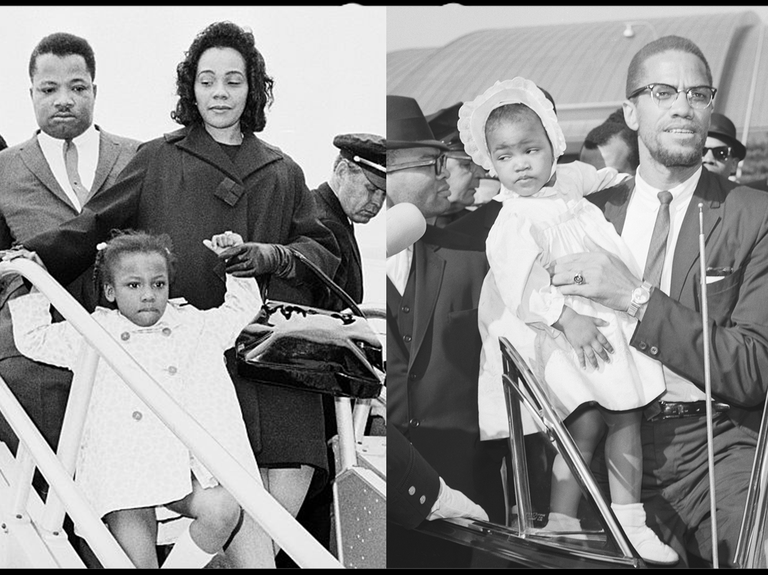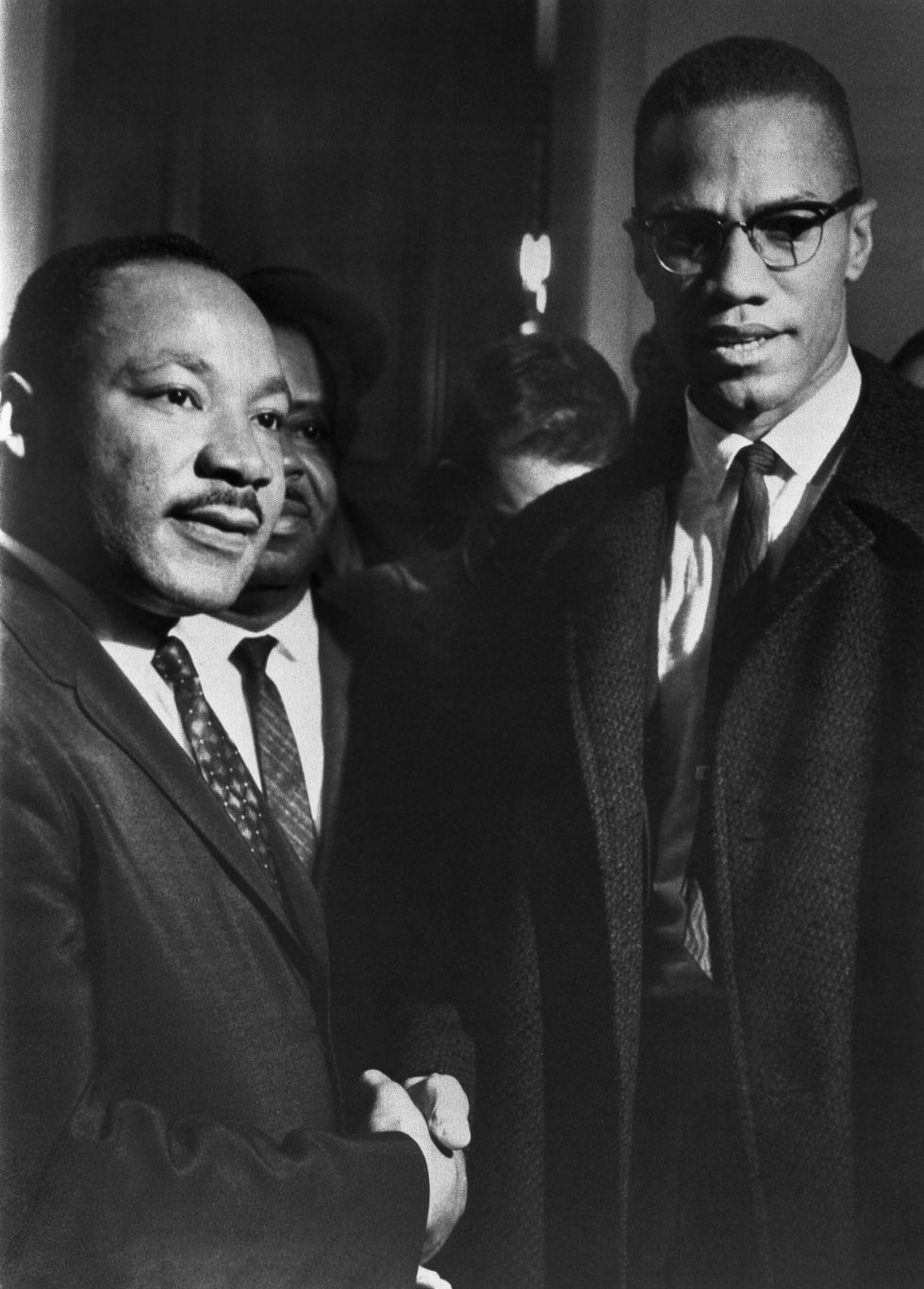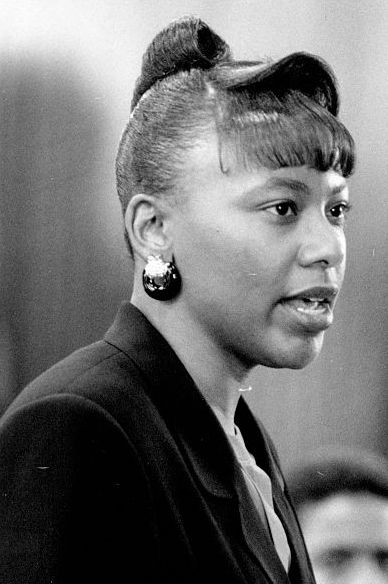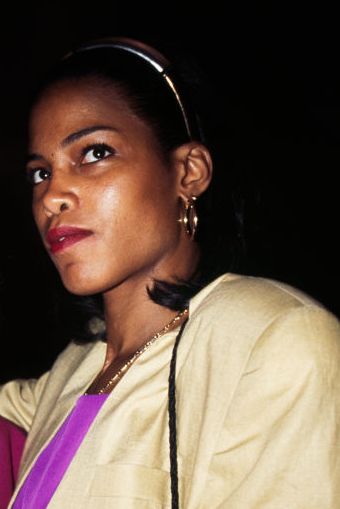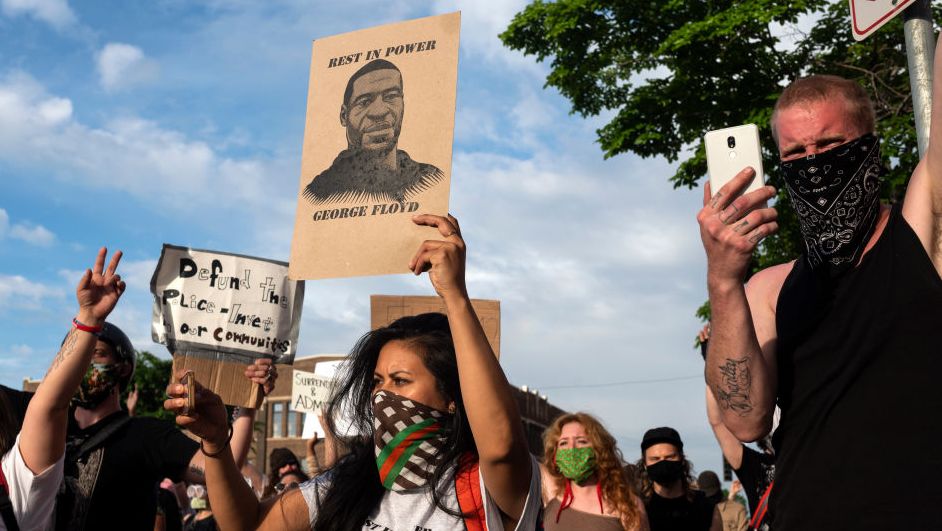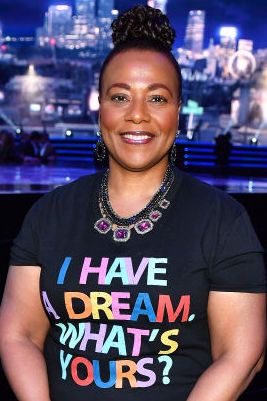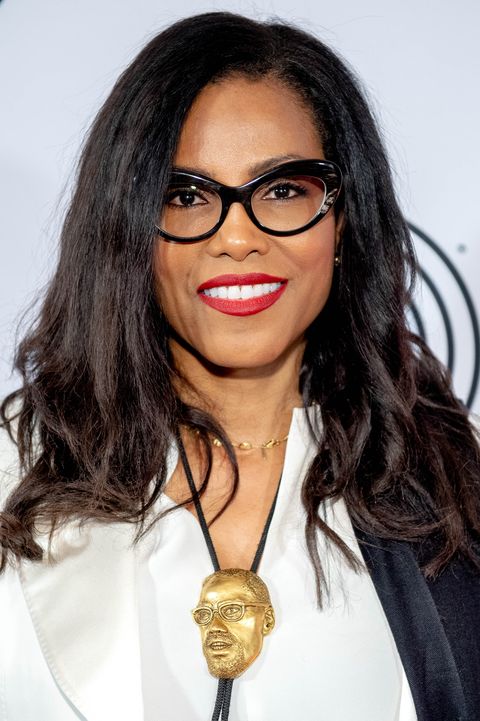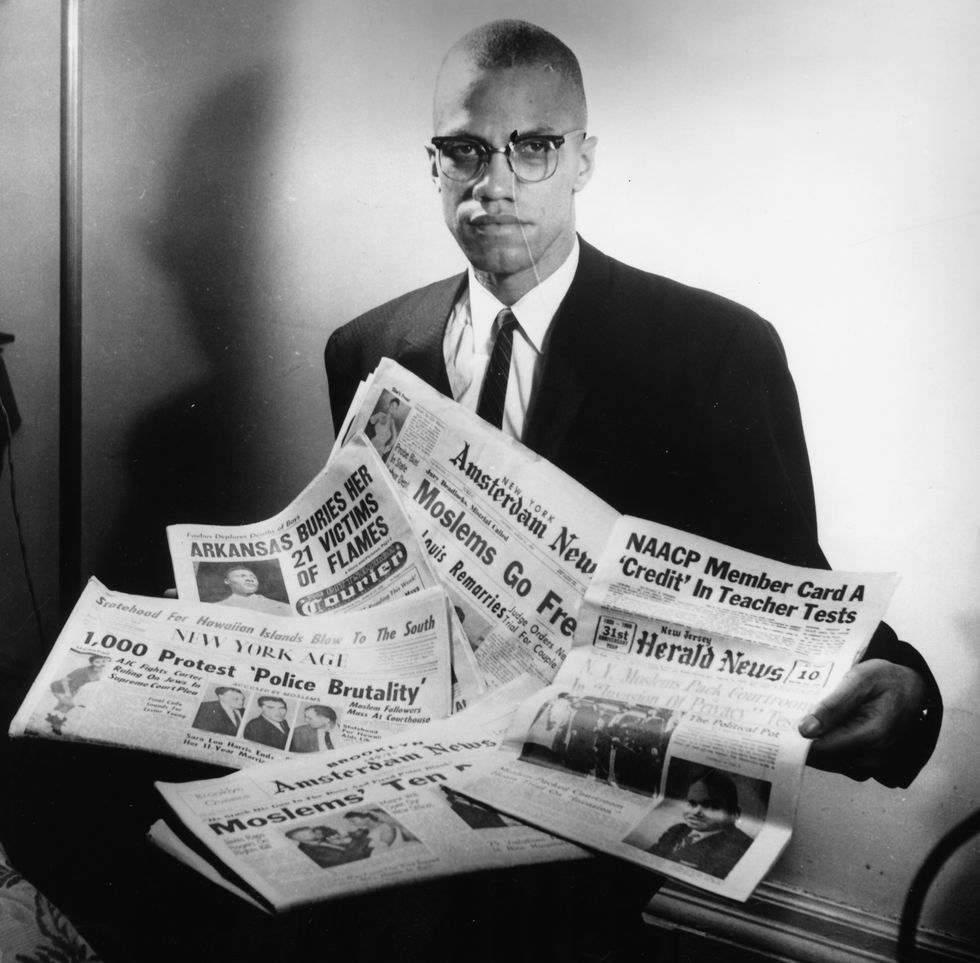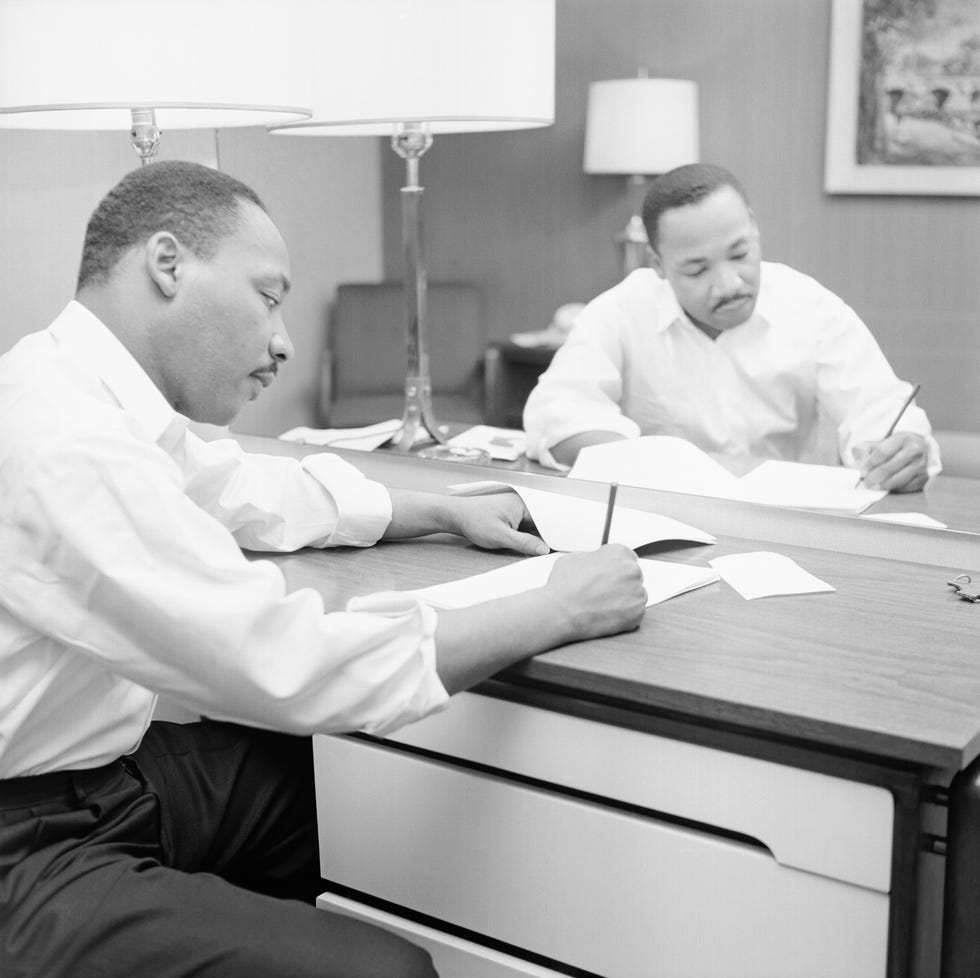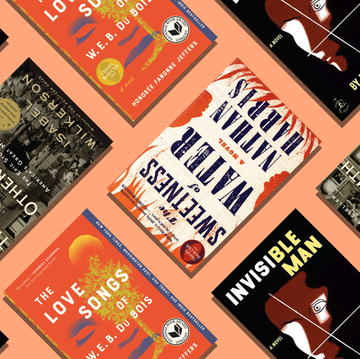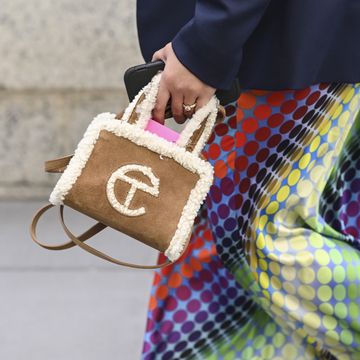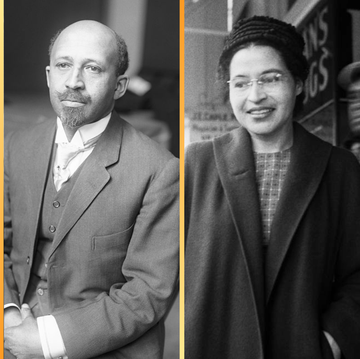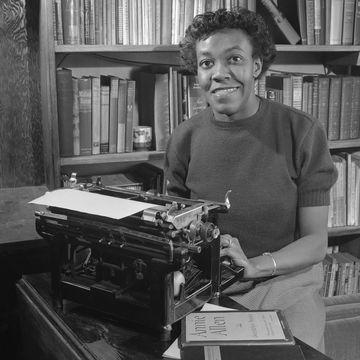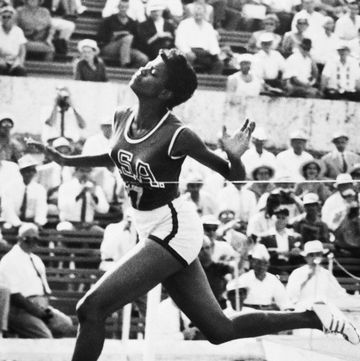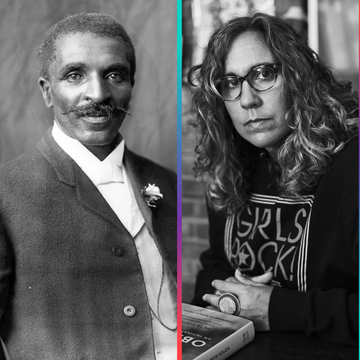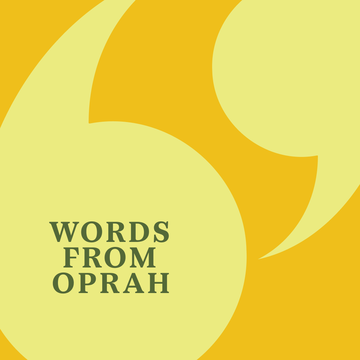It's been more than 50 years since Martin Luther King Jr. and Malcolm X—two of the most prominent and widely recognized leaders of the Civil Rights Movement—were assassinated three years apart, both at the age of 39.
For days after Dr. King was killed on April 4, 1968, Americans took to the streets in more than 100 cities to protest and riot. On the seventh day, President Lyndon B. Johnson signed the Civil Rights Act of 1968 into law. Fast-forward a half century later, and in 2020, the murders of George Floyd, Ahmaud Arbery, Breonna Taylor, and so many other Black lives are weighing heavily on the moral compass of America, leading many to speak up and demand justice once again.
But can change actually happen this time? More than a week after Floyd died in the streets of Minneapolis, the path forward remains unclear. In this renewed time of unrest, many have turned to the words of our nation's most historic civil rights leaders for moral clarity, advice, comfort, wisdom, and peace.
While we cannot hear directly from Dr. King or Malcolm X in 2020, their legacies live on through their families and children, including two of their respective daughters: Dr. Bernice King, currently CEO of The King Center in Georgia, and Ilyasah Shabazz, an author and professor at John Jay College of Criminal Justice in New York. The two women both lost their famous fathers at a very young age and maintain a friendly relationship, despite living hundreds of miles apart. ("Ilyasah, we gotta talk again soon," King said as we we wrapped up our three-way phone call.)
In the week following Floyd's killing, the women spoke to OprahMag.com about how they believe Americans should view their fathers' legacies amid the renewed protests, their unique empathy and pain for the 6-year-old daughter of George Floyd, and their hopes for a path forward.
Thank you both for taking the time during all of this. Between the deaths of Ahmaud Arbery, Breonna Taylor, George Floyd, and so many others, it's been a really heavy time. How are you doing?
King: I don't even know how to put it in words. And what I mean by that is I probably could use every word that fits the emotional continuum of anger and frustration. No more, no more. No more can my white brothers and sisters ignore what is going on in Black America.
People of all backgrounds have been a part of the social justice movement for a long time, going back to my father's day. But I'm speaking about the people of influence and power who have refused to listen to the cries and the protests coming from our beautiful Black millennial and younger generations over the past eight years. Still, even in the midst of all of that, I am overly encouraged.
I think we're at a tipping point. We’re at a place where we can deconstruct and reconstruct some things in America around these systems. But it's not going to happen overnight. It's going to require persistent, vigilant effort. I typically agree with most of what my father said, but there's this one thing that I'm on a mission to disprove and challenge: He said one of the tragedies still of human history is that the children of darkness are more zealous and determined than the children of light. And I am on a mission to disprove that.
Shabazz: I agree with my dear sister Bernice, and this moment does take you to so many different emotions because it has been happening for a very long time. But this has just been absolutely overwhelming, disheartening, terrorizing, traumatic. To see [officer Derek Chauvin] use his knee...someone who lacks the capacity to care sniffed the life out of this young, beautiful man. I'm so proud that these young people are relentless.
Because I think that any one of us deserves the right to safety, that we deserve the right to freedom and peace. The right to breathe, to live. There are good officers, and there are bad officers—and the bad officers need to be smoked out. Right? They need to be retrained and reeducated.
King: And they need to be held accountable by their fellow officers. You know what I'm saying, Ilyasah?
Shabazz: Yeah, absolutely, 100 percent. It was traumatic not only for the nation, but for the world to see this. Here we are at home, supposedly self-isolating because of a pandemic that is challenging whether or not we will live. That we would be subjected to see this—and then go out and march in spite of our self-isolation? This is how much it means to the world. We believe in the humanity of everyone. No one's human rights should be violated. You are supposed to be protecting and serving us, not intimidating and terrorizing us.
King: I just wanted to say to Ilyasah—I couldn't help but think about my heart going out to all of George Floyd's children, but especially his 6-year-old daughter. I was 5 when my father was assassinated— Ilyasah, I think you were 3 when your father was assassinated—and the society his children live in now is unlike the one we lived in. This is replaying over and over again on the news and social media. Can you imagine? I don't know how you feel about it Ilyasah, but I don't like those posts showing my father in a casket. I run across it, and it's still too much for me. I'm 57, you’re 57, and this 6-year-old is going to have to contend with that. The rest of the children are gonna have to contend with that. I prayed to God the cameras captured what happened [to Floyd], but I'm like: God, is there a way to balance some of this after we’ve gotten people where they need to be?
What's your message to the children of George Floyd—or the children of countless other Black people who have been killed at the hands of police?
King: We are sorry for not doing enough to ensure they would not have to live in a world like this. I'm speaking for a collective apology, because I think too many people have been comfortable in the secure confines of their lifestyle, and not being vigilant in this freedom struggle.
My mom said it best: “Struggle is a never-ending process. Freedom is never really won. You earn it and win it in every generation.” Too many of us got very comfortable living our best life, that we didn't work on these systemic issues so our children would not have to be on the streets the way they are now. They shouldn't have to see this ugliness and this violence. So I would just say to them: Continue to stay vigilant, continue to persist, and I would not give up on peaceful protests. I know it's hard, but I just hear my father say: "We must forever conduct our struggle on the high plane of dignity and discipline." If I give up on that, I have to just say it's over, because we can't continue on this path of destruction. I can't even imagine where it would take us.
To those that have been standing in the strength of justice and freedom, I'm proud of them. I've been watching down here in Atlanta, for instance, yesterday a group of people were protesting. They went down to city hall, and they made their demands toward our mayor, an African American mayor in this instance. They talked about three or four things that they want. And that’s when we have to come in agreement with them. They're fighting for the soul of this nation.
I wanted to get your perspectives on the legacies of both of your fathers: How do you think we should view them in today's context?
Shabazz: The very issues that are occurring today are the same issues my father challenged over 50 years ago. He was assassinated. His image was misappropriated. My mother safeguarded the legacy of her husband—not for him or her to shine, but for the benefit of future generations.
There are eight billion people in the world. Eighty percent are people of color, and our history has been rewritten. My father's focus was simply to make sure our children have the opportunity to understand their rich heritage, legacy, and identity in the world. Malcolm X wasn’t just walking around angry; he had a profound reaction to police brutality, terrorism against innocent people, the oppression of billions of people, internationalizing that struggle. Having to see George Floyd's life being sucked out of him so maliciously was a wake-up call for so many. Before, saying "Black lives matter" seemed to rub a lot of people the wrong way: "What do you mean, Black lives matter? All lives matter!" Well, now we understand what Malcolm was fighting for, and we understand what Dr. King was doing.
There's always this divisive tactic. Instead of appreciating each significant contribution and sacrifice to our nation, we are programmed to choose one over the other. W.E.B. Du Bois versus Booker T. Washington, the same thing with Tupac and Biggie Smalls, and with Dr. King and Malcolm X.
King: I think it's important to just add this particular point: They were both fighting for the dignity of African American people. I think that's what the different movements were about. I think when people start picking them apart, it does a disservice to the movement for freedom, justice, and I'll say equity—because equality is not enough.
Shabazz: To choose one over the other is really a disservice because it's such a divisive tactic, and we don't need to be divided. We need to all come together and solve this problem so we don't find ourselves in the same space 50 years from now. Because we are in the same space we were 50 years ago, fighting for the same causes.
King: Divide and conquer has been a tactic of old, and I get tired of it. I said this the other day, regardless of what Malcolm's practice or belief around "If you try to destroy me, I have to do something to protect myself." At the end of the day, regardless of whatever was pronounced and regardless of what he stood for, regardless of whatever he believed, when a person's life is over and done—in this case being Malcolm X—it's useless to take that argument to justify whatever you're trying to justify. I actually don't see one incident where he was violent the way people describe him to be or the way people are co-opting it.
Shabazz: So here's the thing. If you're in your house and someone throws a bomb, and your house is on fire—do you sit there? No. You get your family, you get out, and you do what's necessary to protect your property. You get water, you call the fire department, and that's what my father's talking about. If you have people who are consistently bombing your communities, at some point you can't just sit in the ruins of the building that has fallen. Next time you're going to build a gate around it to make sure they're not going to be able to come back with another bomb and destroy your home again.
My father was a compassionate person, but he was not a violent person. He was trying to stop the violence that had been committed on us for 600 years. So he was giving us information we needed to feed our humanity to say, "Listen: You are the sons and daughters of the founders of civilization. It is important that we understand our power and prowess in order for us to continue to go forth." So I think it's important to put that in proper context, because it was his compassion that allowed him to sacrifice all of himself to make sure he gave shock treatment to Black people, to help white people understand our humanity, and to internationalize the struggle so that we ourselves are a reflection of one another, as opposed to being divided.
Dr. King and Malcolm X were both loving, compassionate men fighting to rid the violence and the terrorism against their people.
In 1963, Malcolm X wrote to Martin Luther King Jr. asking for a united front on the fight for civil rights. What do you think they would be fighting for today?
Shabazz: We want to be human beings. We don’t want anyone to have authority over us. We want peace and freedom like every human being in the world deserves. Making sure our educational curriculum is inclusive of the indigenous people...that it’s inclusive of facts.
King: And that it is inclusive of our contributions to this nation. Yes, slavery existed. Yes, segregation existed. But we were also creators and inventors. We were business people. Look at the Black Wall Street. A lot of Black kids grow up not even knowing about it because it was destroyed, and that's the problem. There's been a concerted effort to destroy that part of our history that is the truth. We, in my personal opinion, probably contributed more to this nation, and we did it with—
Shabazz: Free labor!
King: Exploitative labor! Not just free—exploited, oppressed, killed, maimed, lynched. So reparations would be a part of the discussion, certainly. There is so much due, and reparations can come in many different forms. Cash payments, that may be one thing, but—
Shabazz: Free education!
King: Free education, yes. Definitely. Maybe not even paying taxes for a certain period of time.
Shabazz: I’m okay with that.
King: Let all our income go into our pockets, because it was taken away from our ancestors, and it wasn't like thousands of years ago. It wasn't. You're talking about just 50 years ago, we were paid slave wages.
I think our fathers would talk about a whole deconstruction and reconstruction of police in America. Because policing is really about trying to keep us in check. You had the slave patrols, and it just mutated into something else, and it's always been steeped in that. There has to be a whole other foundation—I don't even know what you would call them—maybe community engagement officers. But the name itself needs to be dealt with because it's a mindset and a mentality that comes out of history. It has been perpetuated, and unfortunately it's gotten even into the psyche of some of our African American officers—that's the systemic part of it.
So there’s work to do. But I want to say, let us be careful that we don't just focus on voting and policy work, but the accountability that comes after the fact. So many times we tell our kids vote, vote, vote—and I struggle with that. I want to talk to them about citizenship and engagement because it goes beyond just voting. It's holding elected officials accountable, staying on top of those policies and those laws.
Shabazz: Right. Understanding legislation and laws and policy.
King: I mean, we're not just passing laws just to say it was passed. But a lot of my emphasis right now is on getting people to put their energy around this use of excessive force. We've got to stop the bleeding because the deconstruction and reconstruction is a longer process. I feel like we’re in the emergency room right now. You have to stop the bleeding; you’ve got to stabilize the patient if we’re going to stabilize America. The reason why it's so hard for these peaceful protesters to go home is because there's no justice, and I don't have peace. To go home in peace, I need justice. We have to create an environment where we can stop this bleeding.
Shabazz: Whew!
King: The other thing is, I think my father would rewrite a Letter from a Birmingham Jail to these white pastors, particularly those in evangelical circles who have surrounded and supported Trump. I don't have a problem with people voting whatever party they’re affiliated with. I do have a problem if you're silent when they do things that are hurtful and painful and damaging to a community. He would call them to task to represent the true spirit of Christ, which is a revolutionary spirit. It's not a cowardice spirit, it's a courageous spirit. You can't just be inside those stained-glass windows. We need you to come outside into the public square and declare that you're going to hold other white people in this country accountable for any of the behaviors and actions and speeches that are offensive and insulting and damaging to another group of people.
Are there leaders each of you look to today? Thought leaders, writers, politicians, etc, at any level—anybody whose work you've found helpful?
King: I'd like to shout out Bryan Stevenson. That's another mission I've been on. My mission is to get every white person who's not aware and awake to start there. Because he built The Legacy Museum: From Enslavement to Mass Incarceration and the National Memorial for Peace and Justice in honor of lynching victims. People need to come to that environment. It explains the narrative in a way I've never seen it explained. It connects the dots. It shows the thread of white supremacy in our nation and how it's been fed or developed into our system. That is the critical starting place. You know, my dad said we must learn to live together as brothers and sisters, or we would be forced to perish together as fools. And so this is a place where we begin to unlearn and learn the truth of how we got to where we are today and why people don't want to wait any longer.
And then there are a host of people we know who are just writing on things. Michelle Alexander's The New Jim Crow. All the antiracism work and books, I mean there's just so many. But I think it's something about going to the National Memorial for Peace and Justice. It's on the soil of where all of that craziness started with the Confederacy, and yet on the same soil is a movement that came to break all of that up. It's like going back to the foundation so we can undo it.
Shabazz: Bryan Stevenson is one of my American idols. In my courses, my students watch Stevenson’s TED Talk, and the one quote that stands out is where he speaks about our value system. He talks about how a society isn't measured by how we treat the rich and celebrate it, but that it's measured by how we treat the poor, the disadvantaged, the imprisoned. What is so spectacular about the Legacy Museum is that he went to the various sites and got soil from where these people were lynched and put it in jars. That's one of the things that decorate this museum that just gives it so much power—restoring their humanity.
There are so many people we are so grateful for. Their work, their continued steadfast focus to make sure this next generation understands the challenges that preceded them and how empowered we are. We are just applauding their efforts, their perseverance—and we've got them.
For more stories like this, sign up for our newsletter.
